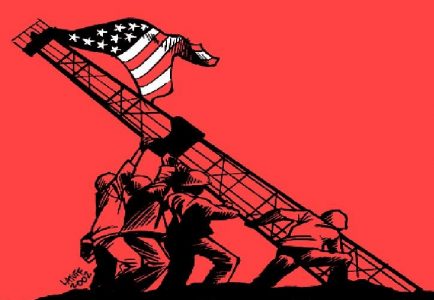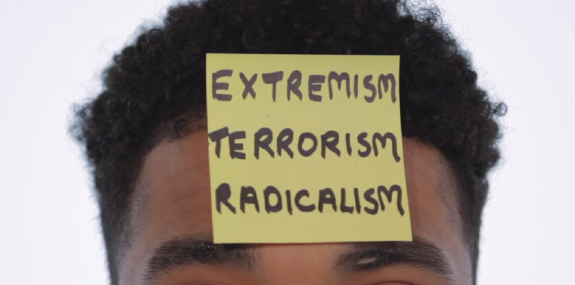The Cancer of Capitalism

By Christian Marx
Capitalism by its very definition is exploitative. It relies on winners and losers. At its most basic definition it can be defined as the exploitation of an individual or group of people for financial gain. Modern day capitalism has been in existence for approximately 400 years.
In that time it has been the direct cause of hundreds of millions of deaths and the suffering of many hundreds of millions more. Almost all wars are fought for financial gain, in the past 100 years the wars have concentrated around natural resources such as fossil fuels and other minerals.
The entire conflict in the Middle East can be traced to the extraction of oil from poorer Arab countries via U.S imperialism. In order for the West to manufacture consent for the Iraq and Afghan wars, propaganda and blatant lies were told to the populace of Western countries. Lies, such as, “these countries had weapons of mass destruction”, and that “Islam wants to destroy the West and needs to be contained”. The populace was manipulated and divided by fear, through a corrupted corporate media and various puppet governments. The real enemy was the West itself, one again raping and pillaging sovereign nations for their corporate backers.
These two wars are just the tip of the iceberg as far as capitalist imperialism is concerned. Here is a list of just some of the capitalist wars waged by The U.S and their allies, and their corresponding death toll:
- Iraq and Afghan wars: More than 2 million
- Angola: 500,000+
- Cambodia: 2.5 million
- Chile: 3,000 murdered by the CIA backed Augusto Pinochet
- Cuba: 2,000-4,000
- East Timor: Indonesian government backed by the U.S: 200,000 dead
- Al Salvador: U.S financed puppet government to kill its own citizens protesting against austerity and fighting for social justice: 75,000
- Indonesia: 1 million Communists murdered
- Iran: 262,000
In all, 37 sovereign nations have either been invaded or attacked by foreign backed, corrupt puppet governments. These puppet governments have been installed by the U.S. in a bid to smash socialist movements and protect U.S profits. (Global research, 2015).
While imperialism is responsible for the overwhelming amount of deaths attributed to the capitalist system, it is not the only source of misery and death.
Austerity measures have contributed to an astonishing increase in suicides in the U.K and the U.S. A study conducted by Scientists, Stuckler and Basu confirmed that a spike of over 10,000 suicides and over 1 million cases of depression have resulted since the introduction of austerity measures in the U.K and the U.S (Guardian, 2013).
Some 5 million Americans have gone on to lose their healthcare insurance, as a direct result of their job loss, and a staggering 10,000 U.K families are now homeless (Guardian, 2013).
Stickler goes onto say “If austerity was run like a clinical trial, it would have been discontinued. The evidence of its deadly side effects – of the profound effects of economic choices on health is overwhelming”. (Guardian, P.1, 2013).
The media also has to shoulder much of the blame for the lies and propaganda that they feed to the masses. How many times have we heard the blatant lies and rationalizations for more tax cuts for the wealthy and less services for the needy? Just today Scott Morrison is using the new tax slogan “The taxed and the taxed nots,” and hitting the most vulnerable yet again!
Not only does capitalism, and in particular Neoliberalism champion war and attack social systems, but it also now destroys jobs! Offshoring of our manufacturing industry and now even some of our service industry is the order of the day. Compounding this, are both major political parties’ slavish devotion to the causualisation of the workforce. They then wonder why consumer spending is down! The mind boggles at the craven stupidity of these lunatics.
Austerity and offshoring is not only deeply flawed but highly immoral. On the one hand they destroy jobs, and then they attempt to shift the blame on the unemployed whose jobs they wantonly destroyed! Casualised jobs keep the workers desperate and compliant. Off shoring jobs, exploits cheap labour in foreign countries and maximises CEO bonuses.
Ultimately infinite growth on a finite system is suicide. The only organism that replicates this system is the cancer cell. Just like cancer, capitalism will ultimately destroy its host.
References
Henley, J. (2013) Recession Can Hurt, But Austerity Kills. The Guardian, 16 May.
Lucus, James, A. (2015) U.S Has Killed More Than 20 Million People In “Victim Nations” Since World War 2. Global Research, 27 Nov.
Like what we do at The AIMN?
You’ll like it even more knowing that your donation will help us to keep up the good fight.
Chuck in a few bucks and see just how far it goes!
Your contribution to help with the running costs of this site will be gratefully accepted.
You can donate through PayPal or credit card via the button below, or donate via bank transfer: BSB: 062500; A/c no: 10495969










